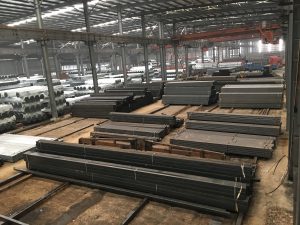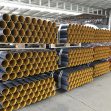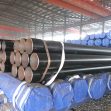Using steel pipes in industrial settings
Steel pipes are a popular choice in various industrial settings due to their durability, strength, and versatility. However, like any other material, steel pipes have both advantages and disadvantages. In this article, we’ll explore the pros and cons of using steel pipes in industrial settings.

Advantages of using steel pipes
Durability – Steel pipes are durable and long-lasting, making them an excellent choice for applications that require strength and reliability. Steel pipes can withstand high pressures and heavy loads, making them ideal for use in industries such as oil and gas, construction, and transportation. Corrosion-resistant – structural steel pipe can be coated with a layer of zinc or other materials to protect against corrosion, making them ideal for use in harsh environments where corrosion is a concern.
Versatility – Steel pipes come in a variety of shapes and sizes, making them versatile and adaptable for a wide range of industrial applications. They can be used for transporting fluids and gases, as well as for structural support.
Cost-effective – Steel pipes are relatively inexpensive compared to other materials, such as copper or aluminum. This makes them an economical choice for industrial applications where steel pipe prices is a factor.
Disadvantages of using steel pipes
Corrosion – While steel pipes can be coated to protect against corrosion, they are still susceptible to rust and other forms of corrosion over time. This can lead to leaks and other problems, particularly in harsh environments.
Weight – Steel pipes are heavy, which can make them difficult to transport and install, particularly in large quantities.
Environmental impact – The production of metal pipe can have a significant environmental impact, particularly in terms of energy consumption and greenhouse gas emissions.
Maintenance – Steel pipes require regular maintenance to prevent corrosion and other forms of damage. This can be time-consuming and costly, particularly in large industrial settings.
In conclusion, steel pipes have numerous advantages and are widely used in various industrial applications. They are durable, versatile, and cost-effective. However, they also have some disadvantages, such as susceptibility to corrosion and weight. When considering using steel pipes in industrial settings, it’s important to weigh the pros and cons carefully and to consider factors such as the environment, the level of maintenance required, and the potential impact on the surrounding community and environment. Ultimately, the choice of whether to use spiral welded pipes or not will depend on the specific needs and requirements of the project or application.
Tel: +86 18202256900 Email: steel@fwssteel.com










